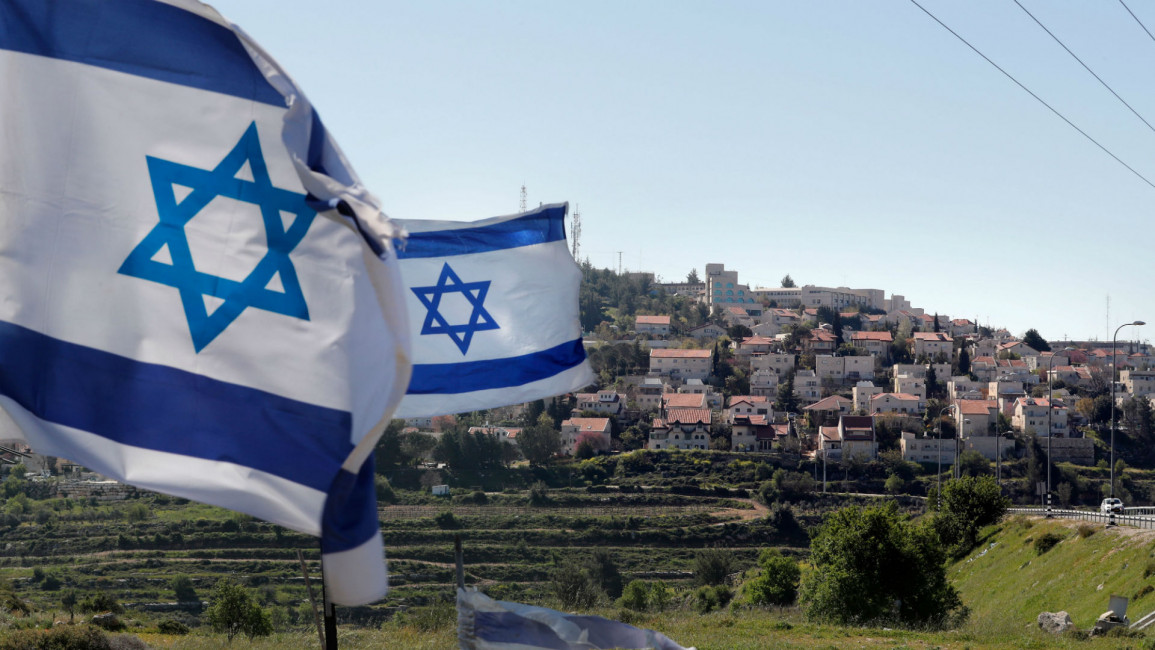WATCH: Saudi Ramadan series blasted for attacking 'ungrateful' Palestinians and promoting 'normal relations' with Israel
Episode 2 of series “Exit 7” brings together superstar Saudi actors Nasser Al-Qasabi and Rashid Al-Shamrani in a scene which sees them discuss dealing with Israelis for business expansion purposes.
Al-Qasabi’s character shuts down the debate noting “Israelis are enemies”, only to be told “the real enemy is the one who shows no gratitude for your stance, dismisses your sacrifices and curses you day and night, more than the Israelis”.
Al-Shamrani’s character continues to say: “we entered wars for the sake of Palestine, we cut oil for Palestine and the day it became an authority, we paid its salaries even though we [the Saudi people] have more right over this money. Yet they take every opportunity to attack Saudi Arabia”.
The clip was quickly shared across social media platforms with activists across the board outraged over Saudi Arabia’s attempt to manipulate millions in its ongoing bid to normalise relations with Israel.
Twitter Post
|
“This entire episode was a clear attempt to normalise the audience's minds over Israel, which was repeated more than 30 times in a frame of 30 minutes in episode 2 of this series,” Palestinian author and media professor, Dr Nawaf Tamimi told The New Arab.
“In another scene, a mother does not see a problem with her son playing with an Israeli boy online - presenting the concept of normalisation as one that is debatable rather than forbidden, as is traditionally the case.
“During the entirety of the episode, the same discourse is repeated and allegations, including “Palestinians sold their land to Israel" and “Israel’s existence is a fact and is part of the status quo.
"This is just part of the growing systemic discourse adopted by the advocates of Israeli normalisation in the ‘new’ Saudi Arabia,” Tamimi added, noting that the inclusion of the debate in a popular Ramadan series is a deliberate and calculated attempt to reach the masses.
Read also: Is Netflix taking part in Israel's propaganda 'Hasbara' campaign?
Gaza's governing Hamas authority condemned the normalisation of ties with Israel via popular television soaps, saying the Israeli "occupation is the central enemy of the Arab nation because it constitutes a threat to all its components."
"Palestine will remain the cause of the whole Arab nation," Hamas said in a statement, noting voices that encourage normalisation with Israel are mere anamolies.
Like most Arab countries, Saudi Arabia does not have diplomatic ties with Israel. However, Gulf Arab monarchies, which share Israel's enmity towards Iran, have made a number of recent moves hinting at warmer ties with the Jewish state.
Most recently in February, a US Jewish umbrella group sent a delegation on an official visit to Saudi Arabia, Israeli media reported, adding that the trip was believed to be the first since 1993.
The visit came as Riyadh continued to deny normalisation with Israel, dismissing reports that its crown prince had plans to meet with Israeli Prime Minister Benjamin Netanyahu.
Netanyahu, who frequently says the boycott of his country is ending despite the absence of a peace deal with the Palestinians, visited Oman in 2018 and caused outrage after meeting with Sudanese leader General Abdel Fattah al-Burhan earlier this year.
The Palestine Liberation Organisation called the meeting "a stab in the back of the Palestinian people".
Egypt and Jordan are so far the only Arab states to have full diplomatic relations with Israel.
Follow us on Facebook, Twitter and Instagram to stay connected



